Meet 12 Incredible Conservation Heroes Saving Our Wildlife From Extinction
Categories: Animals | Nature | Photo project | World
By Vika https://pictolic.com/article/meet-12-incredible-conservation-heroes-saving-our-wildlife-from-extinction.htmlThese 12 wildlife conservationists are doing fantastic work to protect some highly threatened species in a world where many species are racing toward extinction. These heroes are working hard to undo the wrongs already done to the planet by the thoughtless actions of our own species. Learn about them below:
24 PHOTOS
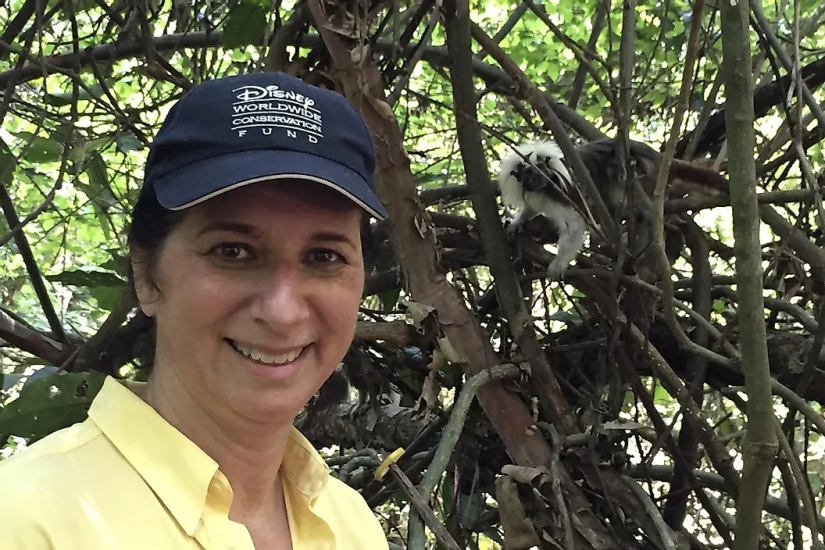
1. Anne Savage Is Saving Cotton-Top Tamarins In Colombia
Dr. Anne Savage with a curious cotton-top tamarin in the tree behind her. Image credit: Proyecto Tití
"I clearly remember that day when I saw the cotton-top tamarins for the very first time. I was in awe! They were as tiny as a squirrel and remarkably vocal. Their chirps and whistles sounded like those made by birds. Yet, they are primates! And the shock of white hair on their head simply delighted me," said Dr. Anne Savage.
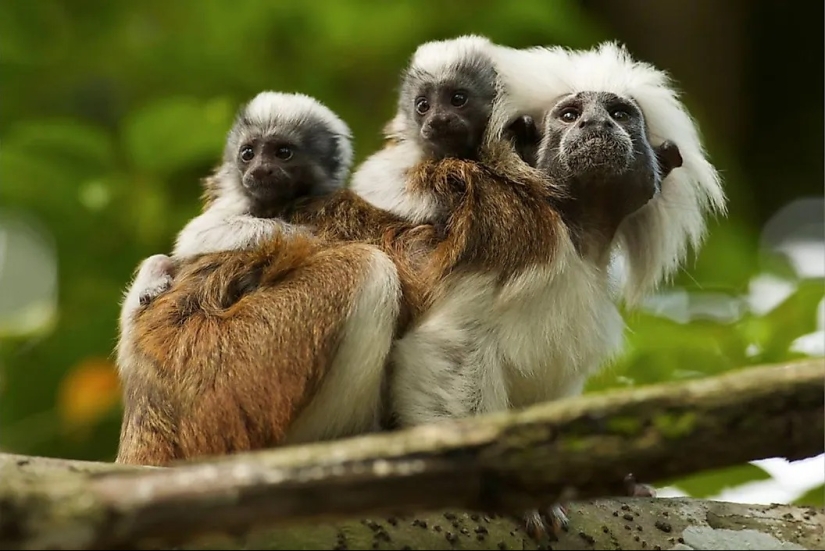
2. A cotton-top tamarin family. Image credit: Proyecto Tití
Her love for the cotton tops (Saguinus oedipus) compelled her to do something to help the critically endangered species survive. In 1987, Dr. Savage founded a conservation program, Proyecto Tití, to protect the primate in its native habitat in Colombia. She also pioneered the development of new technologies to study the elusive cotton tops in the Colombian forests and involved local communities in conserving the species. She also helped conduct a census of cotton tops that found only 7,500 individuals remained in the wild. As a result, IUCN altered the cotton top's status from Endangered to Critically Endangered, bringing more attention to it. Today, conservationists at Proyecto Tití, led by Dr. Savage, continue to strive hard to ensure the cotton-top tamarins have a bright future.
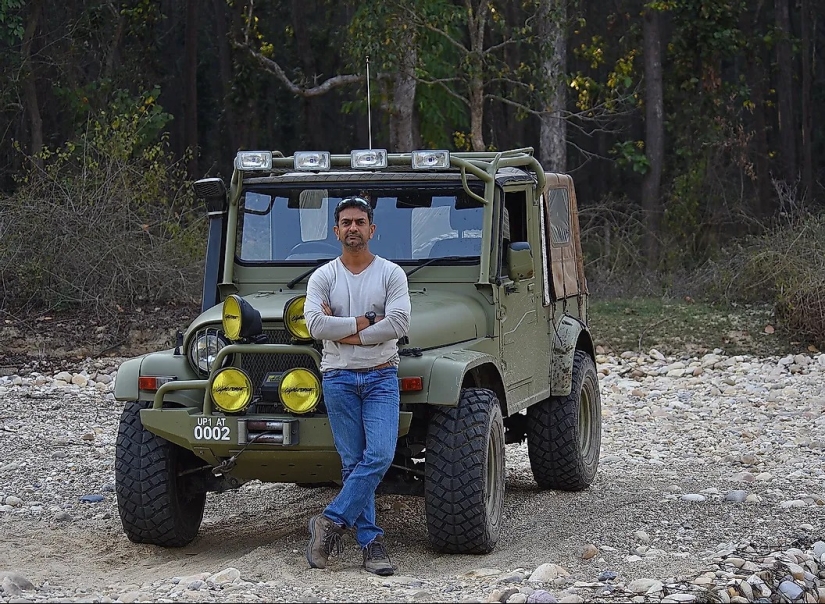
3. Anish Andheria Is Protecting Tigers In India
Dr. Anish Andheria.
"The tiger alone plays a huge role in popularizing conservation in India. Without the tiger as a role model, conservation talk wouldn't have been a household matter in the country. The government, scientists, and conservationists have merely piggybacked on the charisma of the tiger to secure large forested landscapes and the unlimited ecosystem services that emanate from those forests," said Dr. Anish Andheria.
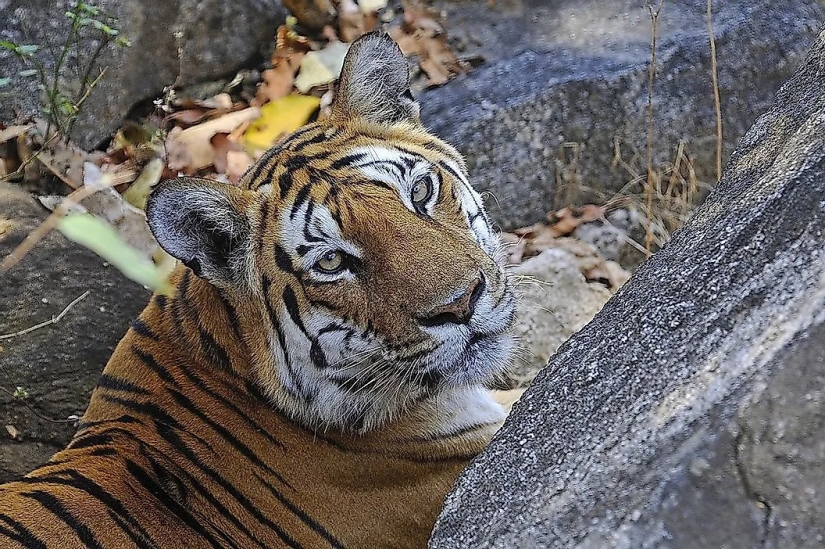
4. Spotlight on a gorgeous tigress. Image credit: Dr. Anish Andheria
Dr. Andheria is the President of the Wildlife Conservation Trust (WCT), an NGO doing outstanding work in catalyzing the conservation of large carnivores and their habitats. Currently, WCT works in and around 160 Protected Areas across 23 states, covering 82% of India's 50 tiger reserves. Dr. Andheria also helped set up the 'Kids for Tigers', a conservation education program for Sanctuary Asia that reached 750 schools and impacted nearly a quarter-million children annually. He is a member of the National Tiger Conservation Authority (NTCA). He also contributes to scientific studies, and national and international publications on issues pertaining to tiger (Panthera tigris tigris) conservation.
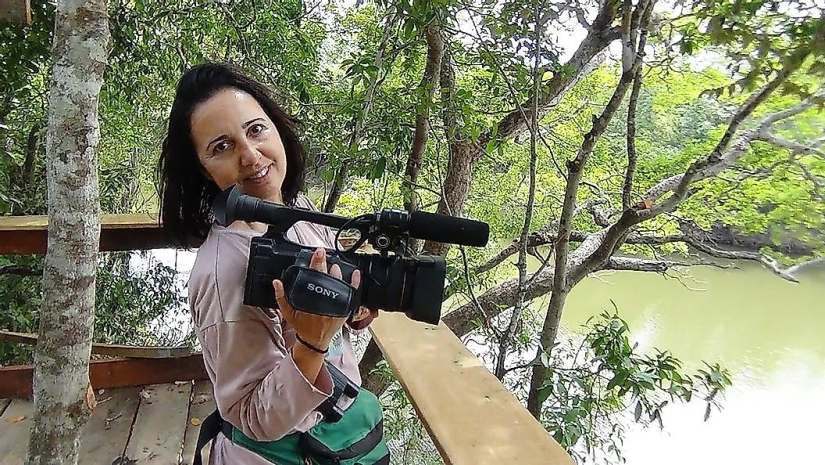
5. Silvana Campello Is Helping The Araguaian River Dolphin In Brazil
Campello photographed wildlife in the Araguaia River for her studies.
"When I first entered Cantão, in the Araguaia River basin of Central Brazil, not only its natural beauty but also its exceptional abundance of fauna, impressed me. Among the most impressive animals was the pink dolphin, a docile and charismatic animal," said Dr. Silvana Campello.
In 2015, a team of scientists from the National Institute of Amazon Research (INPA) conducted a study that found that the pink dolphin inhabiting the Araguaia-Tocantins river system was genetically distinct from the Amazon river dolphin (Inia Geoffrey). The new species, whose classification is still debated, was named Inia araguaiaensis.
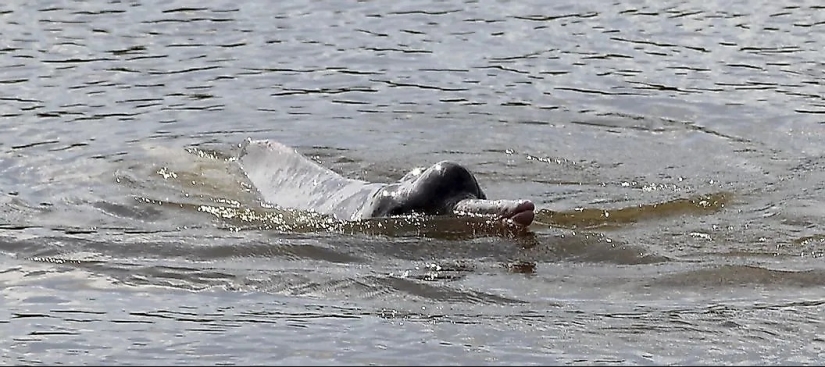
6. An Araguaian river dolphin (Inia araguaiensis) in Cantão State Park, Brazil. Image credit: Rio Cicica/Wikimedia Commons.
Not wasting time, Dr. Campello and her team of researchers from Instituto Araguaia, based in the Cantão State Park, immediately directed their efforts to save the pink dolphins of the Araguaia River basin that numbered not more than 1000 individuals.
The research conducted by Campello and her team reinforced the distinctiveness of the pink dolphin in the Araguaia River. Soon, the Brazilian government recognized it as a new species with endangered status. Campello also studied the threats to these dolphins from dams, fishers, and poachers. She and her team members are now trying to mitigate these threats to help the dolphins survive.
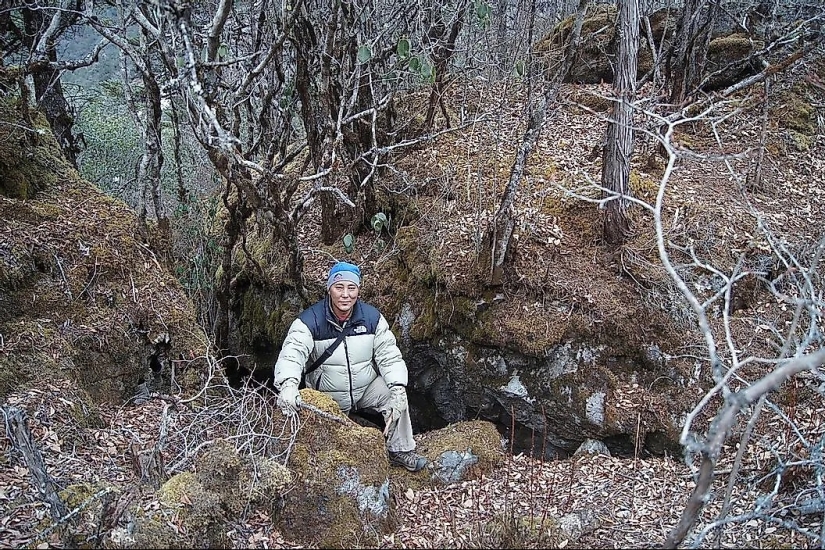
7. Ghana Gurung Is Conserving Snow Leopards In Nepal
Dr. Ghana S. Gurung conducts wildlife conservation fieldwork in the rugged mountain landscape of Nepal.
"Snow leopards are one of the most enigmatic creatures, residing in challenging terrains. Over the decades, we have been learning new and exciting things about snow leopards. Ground-breaking scientific research and monitoring tools have been introduced in Nepal, such as camera trap monitoring, genetic studies, and satellite telemetry," said Dr. Ghana Gurung.
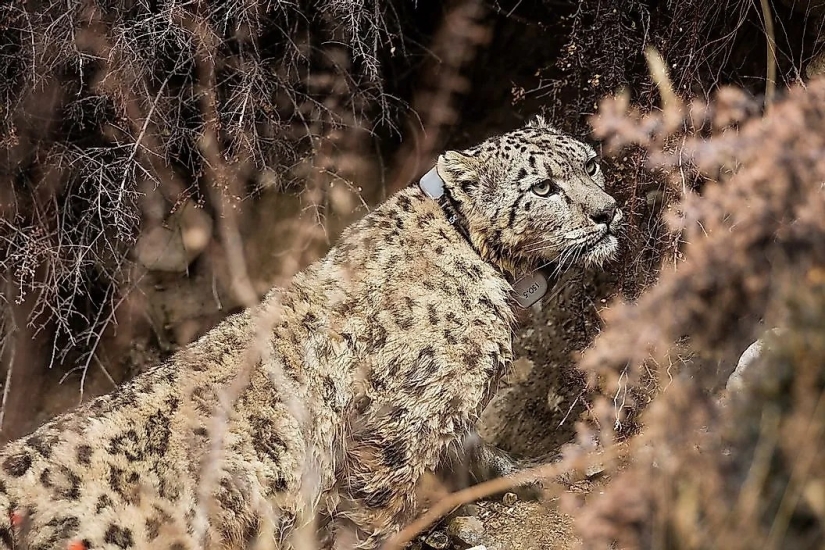
8. A satellite-collared snow leopard. Image credit: DNPWC-WWF Nepal.
Few people know snow leopards (Panthera uncia) like Dr. Gurung, Country Representative of WWF Nepal. Growing up in a herder family, Dr. Gurung knew that snow leopards were enemies who killed his family's livestock. But as his wildlife studies introduced him to the fascinating world of these big cats, he fell in love with them. Today, Dr. Gurung is well-known for the exceptional work done by him in the field of snow leopard conservation in Nepal where the species is threatened by habitat loss, poaching, retaliation killings, and climate change.
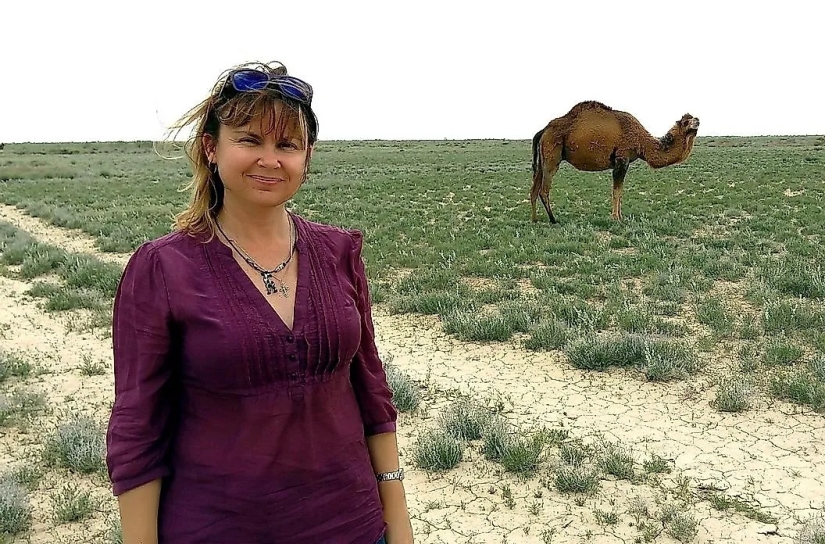
9. Elena Bykova Is Saving The Saiga Antelope In Uzbekistan
Elena in Ustyurt Plateau. Image credit: Alexander Esipov
"Everything about the saiga antelope is fascinating, but what bewilders me most is the way nature has so perfectly designed it to survive in the extreme conditions of its habitat. The unique humped nose of the saiga is its most striking feature. It works as both a natural vacuum cleaner in the dusty summers and as a heater in the chilly winters of its habitat," said Elena Bykova as she described the species she is protecting from extinction.
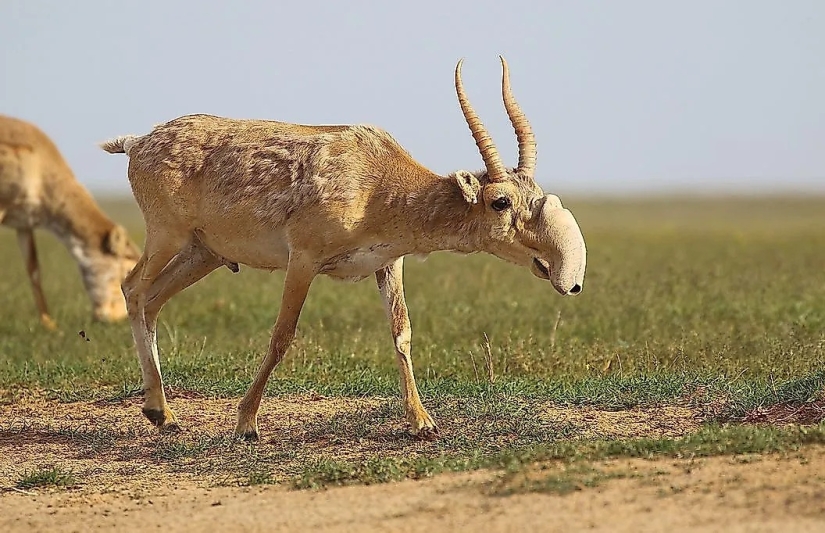
10. Saiga males in Stepnoi reserve, Russia. Image credit: Andrey Gilev
If not for conservationists like Elena Bykova from Uzbekistan, this critically endangered species would have been eliminated by now. As Executive Secretary of the Saiga Conservation Alliance (SCA), Bykova and her team are working to revive the species in the Ustyurt plateau. Poaching is the single biggest threat to the saiga antelope (Saiga tatarica), and Bykova concentrates on raising awareness about the danger, providing alternative livelihood opportunities to local communities, and protecting saiga habitats.
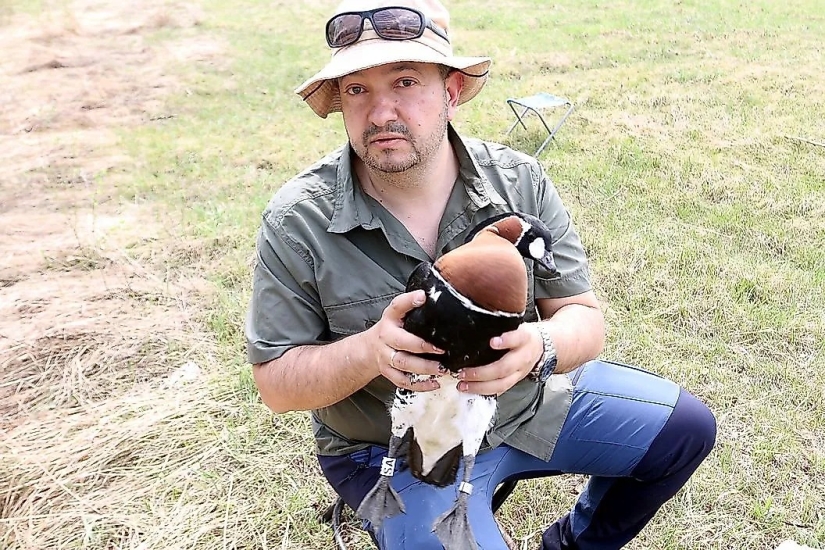
11. Nikolai Petkov Is Protecting The Red-Breasted Goose In Bulgaria
Dr. Nikolai "Nicky" Petkov holding a red-breasted goose.
"Everything about this bird is fascinating. Being a long-distance migrant, it takes astoundingly lengthy flights. Every year it flies around 6,000 km to and fro between the Arctic region and the northwestern shores of the Black Sea. The red-breasted goose is also one of the most splendidly colored species of geese," said Dr. Nikolai Petkov about the bird he is protecting in Bulgaria.
These birds arrive in Bulgaria from the Russian Arctic for winter every year. However, their numbers are decreasing due to developmental pressures, changes in land-use patterns, illegal hunting, and climate change.
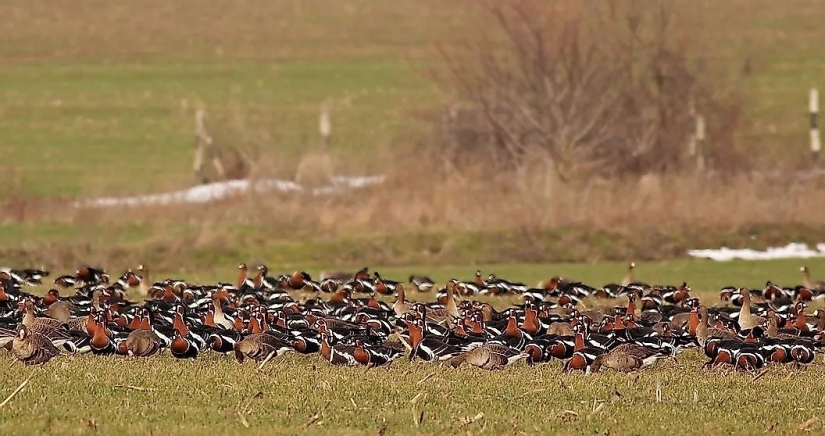
12. Red-breasted geese foraging on the ground. Image credit: BPSB
Dr. Petkov and his team at the Bulgarian Society for the Protection of Birds (BSPB) are working hard to mitigate threats to the red-breasted goose (Branta ruficollis) by protecting the wetland habitats, stopping the poaching of the birds, monitoring bird health and populations, and more.
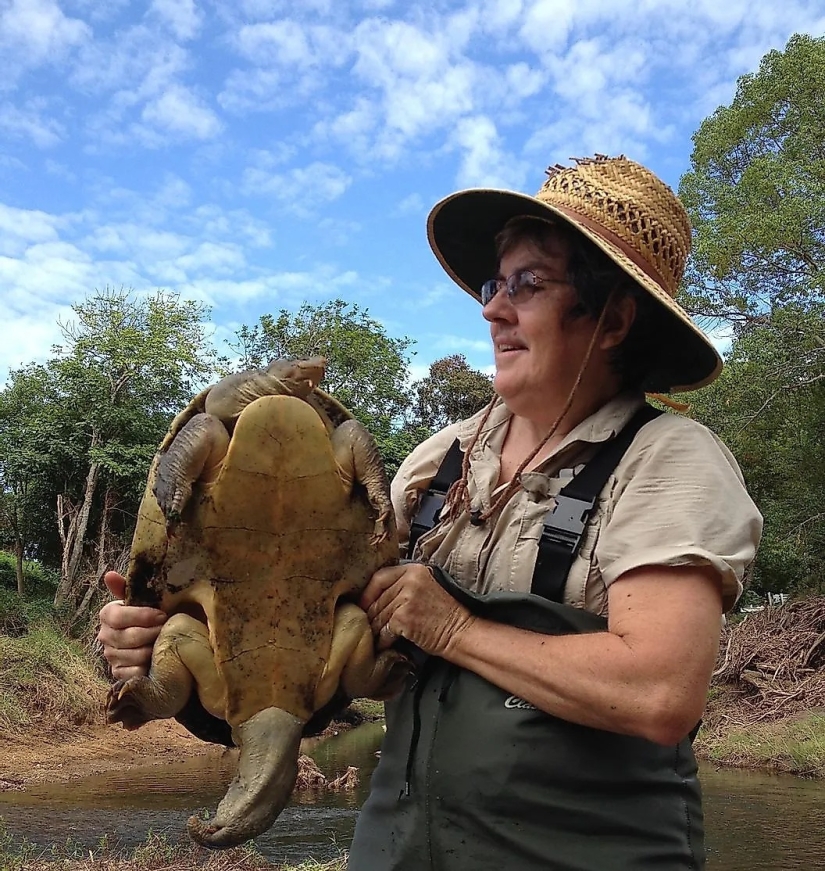
13. Marilyn Connell Is Helping The Mary River Turtle In Australia
Marilyn Connell holding the endangered Mary River turtle, a species that she is striving hard to protect.
Found only in the Mary River system of Queensland, Australia, the Mary River turtle (Elusor macrurus) is like no other.
"The Mary River turtle takes in oxygen in two ways - through its mouth when it surfaces and through the gill-like structure in its cloaca. Hence, it is colloquially known as the 'bum-breathing' turtle. On occasions, they have also been found with a crop of algae growing on their head, which led to the species becoming called the punk turtle," said Marilyn Connell, a conservationist working to save the species.
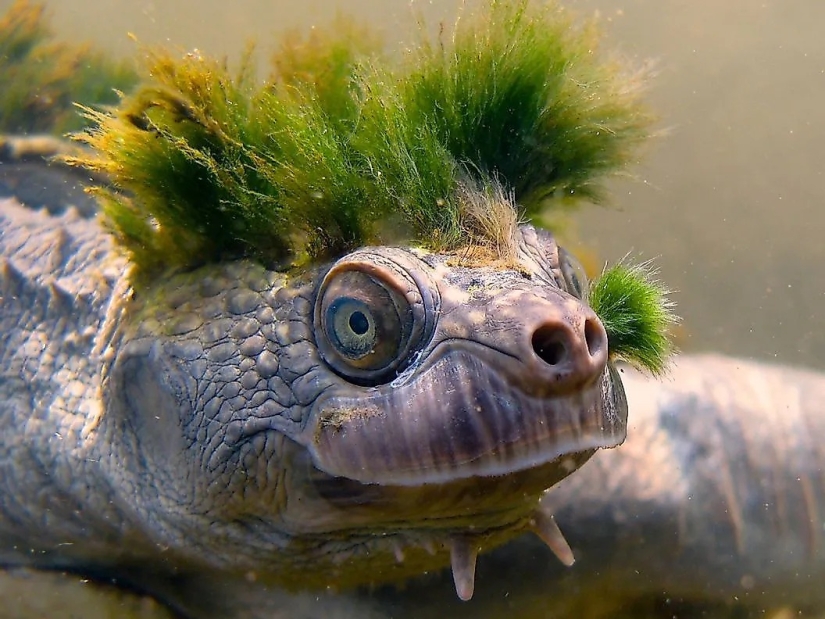
14. The crop of algae growing on the heads of some members of the Mary River turtle gives it the nickname "punk or mohawk turtle'. Image credit: Marilyn Connell
Predation by invasive species is the Mary River turtle's biggest threat. As head of the Mary River Turtle Conservation Project, Connell and her team investigate the in-stream threats to the species. They also devise and implement strategies to protect the eggs and hatchlings from predation, ensuring the species has a chance to survive.
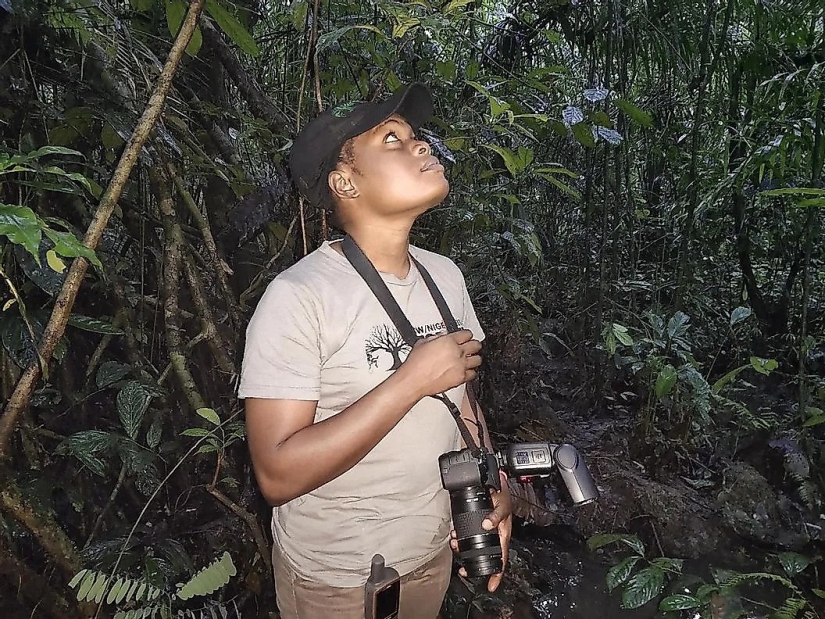
15. Rachel Ikemeh Is Conserving The Niger Delta Red Colobus Monkey In Nigeria
Rachel looks out for the Niger Delta red colobus monkeys on the trees of the forests of the Niger Delta. Image credit: SW/Niger Delta Forest Project.
Working against all odds in one of the world's most volatile environments for a species threatened by habitat destruction, poaching for bushmeat, and armed militancy, Rachel Ikehmeh is one brave conservationist. As director of the SW/Niger Delta Forest Project, Ikemeh is advocating for protecting the species. The work of Ikemeh and her team has brought global attention to the red colobus, helped create protected areas, and decreased poaching.
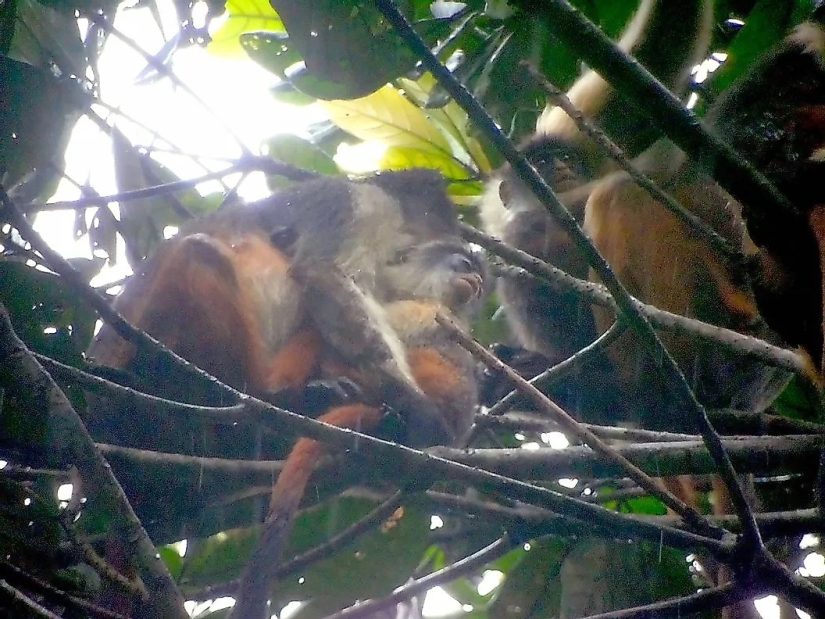
16. A rare image showing a family of Niger Delta red colobus monkeys, one of the world's 25 most threatened primates, numbering only around 500. Image credit: SW/Niger Delta Forest Project
"The Niger Delta red colobus monkey is an important primate species surviving in one of the most volatile environments in the world. They play very vital roles in maintaining the ecosystem. Conserving them will mean conserving their marsh forest habitat and surrounding mangroves. These areas are essential for other wildlife species like fishes, frogs, pangolins, reptiles, and birds and valuable to preserving local livelihoods and cultures," said Ikemeh.
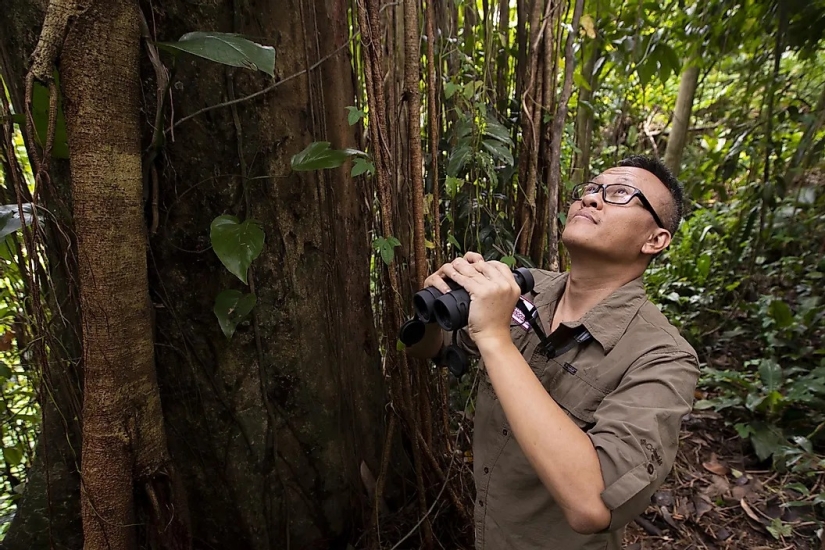
17. Yoki Hadiprakarsa Is Saving The Helmeted Hornbill In Indonesia
Yoki Hadiprakarsa looking out for hornbills in the Indonesian rainforest. Image credit: Aristyawan
"In 2012, I came across a visually disturbing photograph showing the stacked casques of helmeted hornbills on sale in a black market in Borneo. This haunting image, and later, when I met a villager selling real dried helmeted hornbill heads, shook me up completely. They drove me to profile the crisis facing the helmeted hornbill," said Yoki Hadiprakarsa.
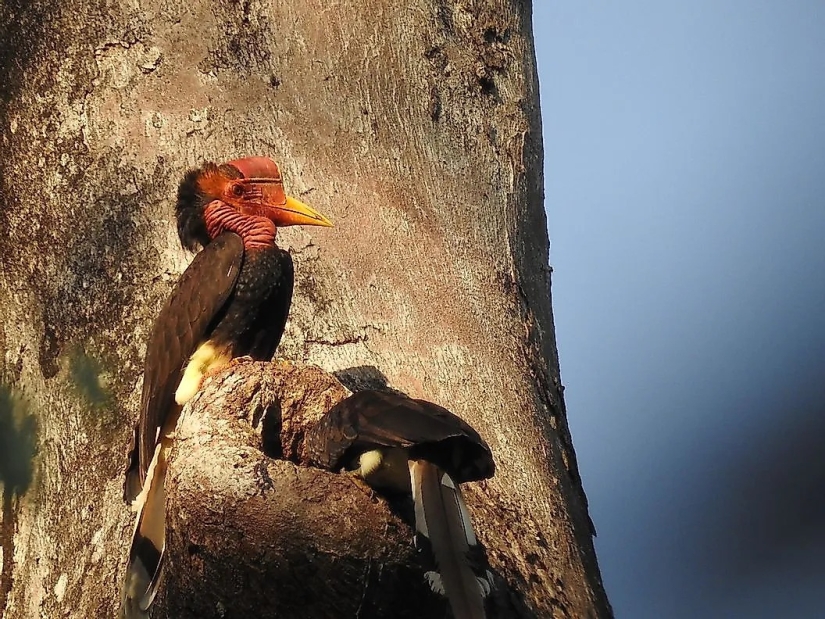
18. A helmeted hornbill on a tree in Indonesia. Image credit: Yoki Hadiprakarsa,Rangkong Indonesia
Since then, Hadiprakarsa has worked to protect the future of the critically endangered helmeted hornbill in Indonesia. He is the Founder and Principal Researcher at Rangkong Indonesia, an organization striving to save Indonesia's hornbills by conducting population estimates, raising awareness of the species on national and international platforms, and involving local communities in hornbill conservation.
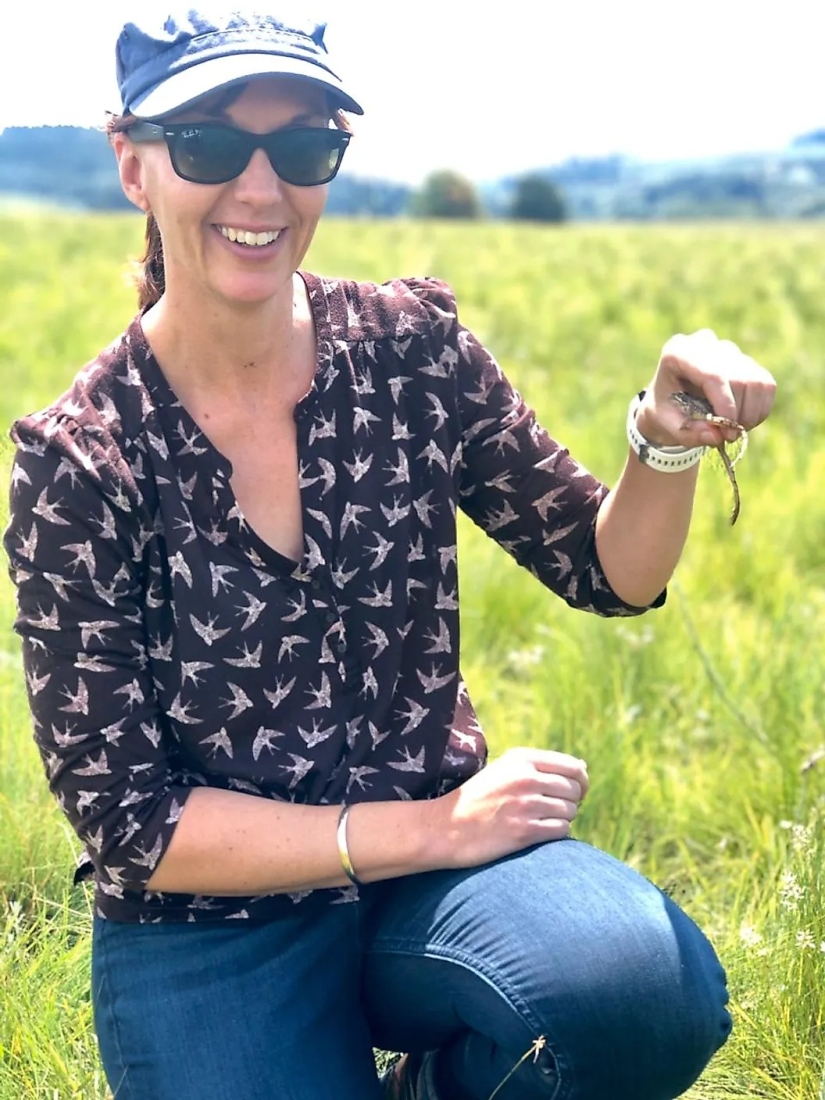
19. Jeanne Tarrant Is Protecting Frogs In South Africa
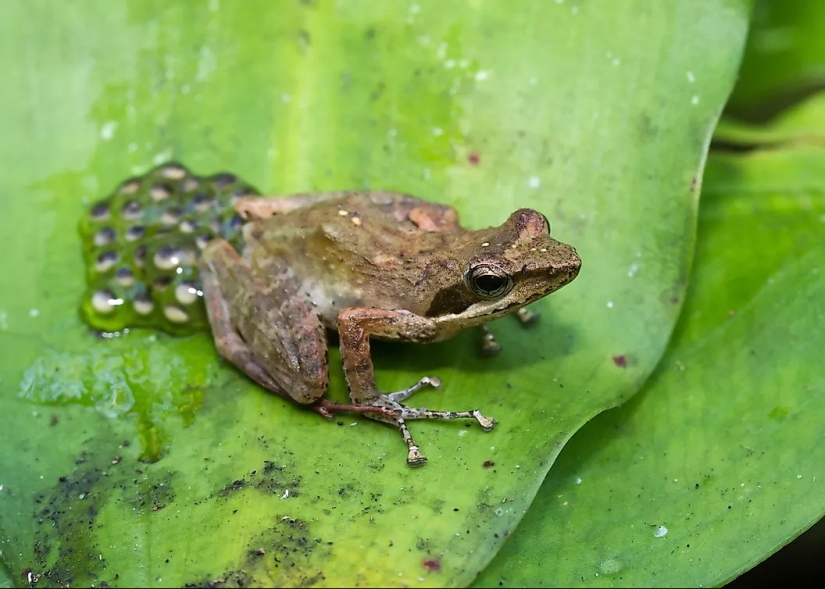
20. Jeanne Tarrant holding a frog.
"They are astonishingly diverse, fascinating, and beautiful. Amphibians also play highly important roles in the ecosystem. Unfortunately, today, amphibians are the most threatened group of vertebrates on this planet. According to the IUCN Red List of threatened species, 41% of amphibian species face extinction," said Dr. Jeanne Tarrant.
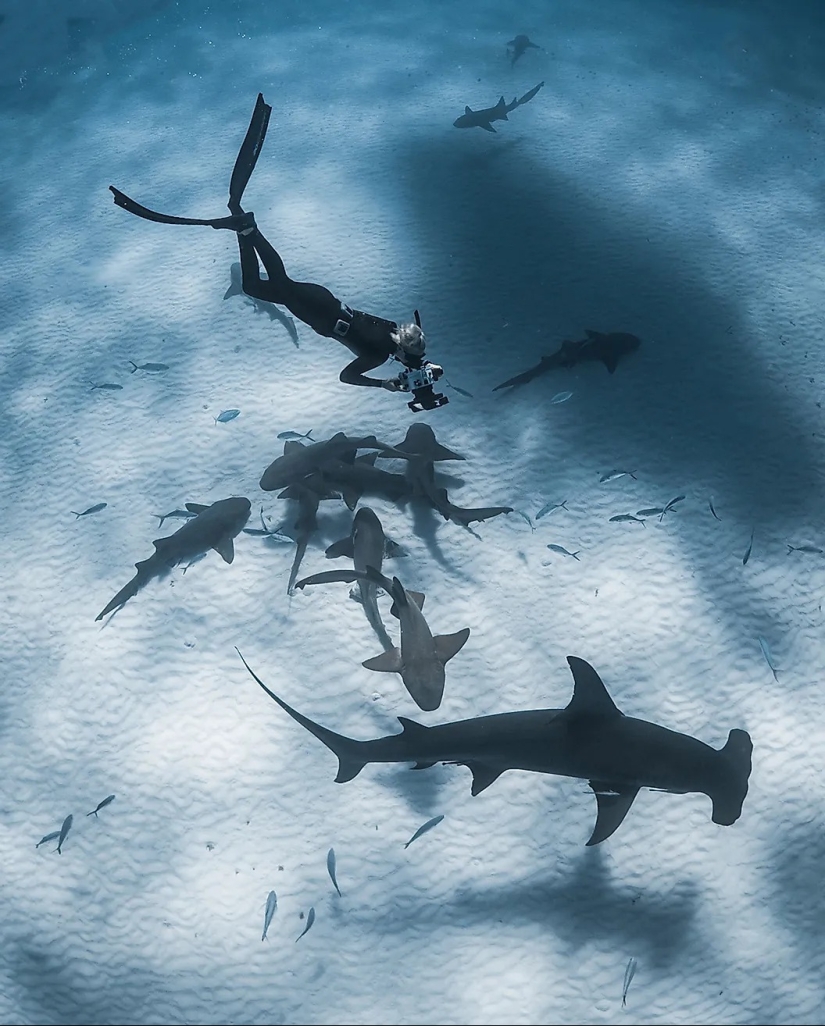
21. Jillian freediving with great hammerheads. Image credit: Sophie Hart
Morris Brake grew up exploring the tidal pool creatures on Maine's beaches and snorkeling in the sea in Florida. The sea and its vibrant life always charmed her, but in the end, it was the fascinating life of sharks that bewitched her into choosing a life dedicated to these sea animals. In 2013, she, with her husband, Duncan Brake (videographer and photographer), and a friend, launched Shark4Kids. The aim was to teach kids about sharks and make them fall in love with these otherwise much-feared creatures. Shark4Kids became a huge success and reached thousands of children across over 47 countries. Today, the Shark4Kids team continues to educate people in the United States and worldwide about the fascinating world of sharks and their importance.
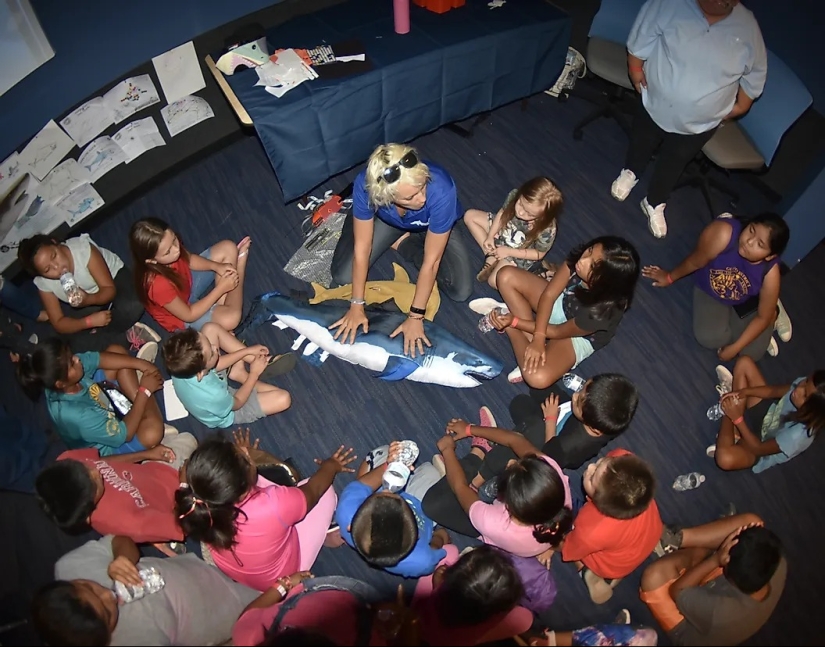
22. Jillian is teaching students in the Bahamas about sharks and rays. Image credit: Duncan Brake
"Kids give me hope and courage every single day. I created Sharks4Kids because I believe kids can save sharks. They are passionate, empathetic, and are taking action. They are far more powerful than they realize, and they inspire me, no matter how tough some days can be," said Morris Brake.
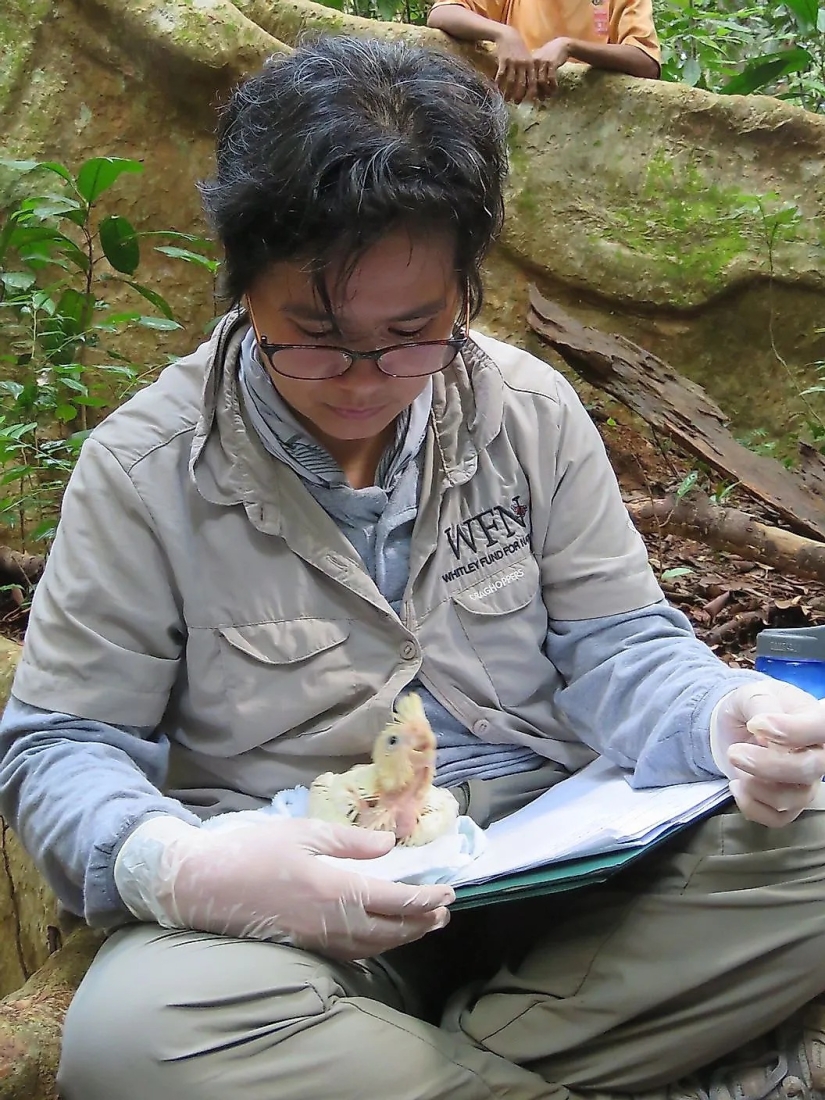
23. Indira Dayang Lacerna-Widmann Is Helping The Philippine Cockatoo In The Philippines
Indira with a Philippine Cockatoo fledgling. Image credit: Katala Foundation
The Philippine cockatoo (Cacatua haematuropygia) is a critically endangered bird found in some remote islands in the Philippines. Decades of hunting, capture for the illegal pet trade, and loss of habitat, have pushed the species to the brink. But Indira Dayang Lacerna-Widmann is determined to bring the species back. With the help of her colleagues from the Katala Foundation (Katala is the bird's local name) and the local community members, including ex-poachers and prisoners, she has managed to give the bird new hope.
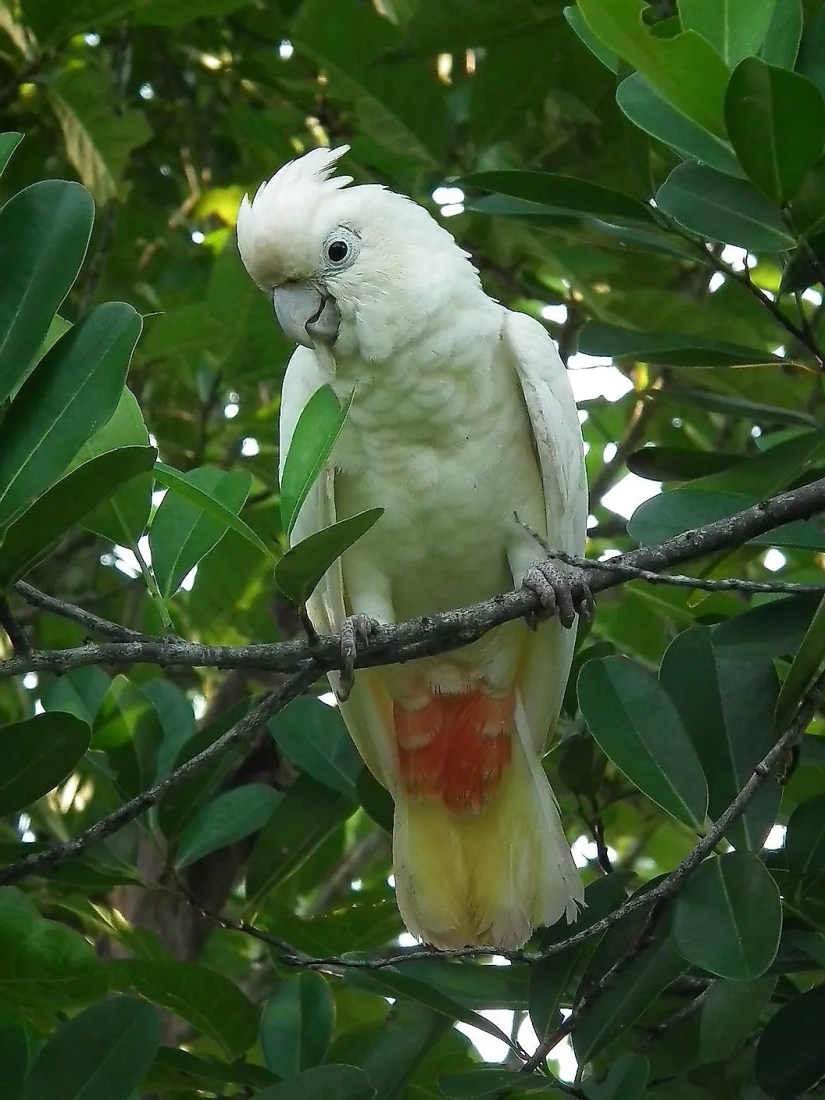
24. The critically endangered Philippine cockatoo, an endemic bird of the Philippines. Image credit: Katala Foundation
"The look in the eyes of the rescued cockatoos gives me hope. Also, the very thought of protecting a species that numbers less than a thousand instills a sense of great responsibility in me. Even after 20 years, I feel the same excitement I felt initially when I put leg bands on the new batch of hatchlings every year! The simplicity, genuine display of gratitude, extreme honesty, and diligent work attitude of the local people including the ex-poachers and the persons deprived of liberty (PDLs) also serve to inspire me a lot," said Lacerna-Widmann.
These conservationists, and many others, across the globe, are harbingers of positive change needed to ensure a healthy, safe, and secure world for the future generations of humans and all other species.
Keywords: Conservation Heroes | Wildlife | Saving wildlife | Conservationists | Nature | Our planet
Post News ArticleRecent articles

It's high time to admit that this whole hipster idea has gone too far. The concept has become so popular that even restaurants have ...

There is a perception that people only use 10% of their brain potential. But the heroes of our review, apparently, found a way to ...
Related articles

It's time to shake the faith of vegans in the unfortunate and cute little animals that are mercilessly killed by bloodthirsty meat ...

SHAAZ Jung is a talented wildlife photographer of the Indian state of Karnataka. It focuses mainly on shooting wildlife, animals, ...

German photographer Thomas Strigelsky created a series of photographs depicting abandoned cars in the Hawaiian jungle. The project ...

New Year's is a time to surprise and delight loved ones not only with gifts but also with a unique presentation of the holiday ...